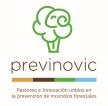
BIVALVES Operational Group: Development of sustainable processes for the comprehensive valorization of bivalve mollusc by-products into different high-added-value bioproducts
- Type Operational group
- Status In progress
- Execution 2024 -2026
- Assigned Budget 592.644,6 €
- Scope Supraautonómico
- Autonomous community Comunitat Valenciana
- Main source of financing CAP 2023-2027
- Project website GO BIVALVOS
The BIVALVOS Operational Group, comprised of five entities from different regions, seeks to valorize bivalve mollusk byproducts, promoting sustainability and the circular bioeconomy. These byproducts will be transformed into agricultural biostimulants, healthy mussel snacks, and wastewater treatment plants. The project involves sorting, washing, mechanical separation, and product formulation, complying with regulations and promoting efficacy in specific applications.
- Separation of the shell and protein portion of bivalve mollusc by-products produced during the production chain and implementation of production chain efficiency.
- Extraction and characterization of protein hydrolysates obtained from bivalve mollusc by-products.
- Obtaining and formulating an innovative biostimulant based on the protein content of bivalve mollusk byproducts. Validation of the formulated biostimulant in a controlled, real-world environment and evaluation of its commercial viability in the agricultural sector.
- Design of the qualitative and quantitative formulation and identification of technological processing strategies for the development of a mussel snack with the ability to boost the immune system.
- Organoleptic, microbiological and physicochemical validation of the functional snack.
- Study and adaptation of the particle size of biocarbonate (the inorganic fraction of the waste) to the applications considered. Validation of the ceramic and plastic supports developed with the highest possible biocarbonate loading.
Bivalve production is one of the most important aquaculture products, with a global output of over 17.7 million tons. The main producing countries are Spain, Chile, China, New Zealand, France, and the Netherlands. In the EU, Spain, France, the United Kingdom, Italy, and Greece accounted for 74% of aquaculture production in 2017.
Bivalves, such as mussels, oysters, and clams, are consumed primarily fresh, but are also canned, frozen, and processed. The mussel farming industry is the most important and is considered one of the most sustainable forms of seafood production. Bivalve aquaculture in Spain generates employment and contributes to food security and exports. The mussel (Mytilus galloprovincialis) is the most produced bivalve in Spain, and is farmed in rafts.
Mussel farming does not require feed, as it relies on plankton filtration. The industry is subject to strict quality and food safety controls. In 2023, aquaculture production in Spain reached 327,309 tons, valued at €629 million, of which 255,303 tons were mussels. There are 5,102 aquaculture farms, 4,842 of which are mollusks. Galicia is the leading region in bivalve production, although other areas such as the Ebro Delta, Valencia, and Andalusia are also important. Approximately 62% of mussels are sold fresh, and 38% is destined for the processing industry. Loss and waste generation rates in mussel production can range from 10% to 50%, depending on the type of mussel.
The main waste product is the shell, which constitutes 33% of the mussel's weight. In Spain, approximately 25,530 tons of shell waste are generated annually, with a management cost of up to €400/ton. Bivalve producing companies need solutions to recover these byproducts and contribute to the circular bioeconomy. Clóchinas Navarro, a project participant, generates 800 kg of SANDACH Category 3 byproduct and 1,500 kg of mussel waste per week, at an annual cost of almost €20,000. BIVALVOS proposes comprehensive recovery strategies for bivalve mollusc waste that can be implemented by aquaculture companies.
- Objective 1: Develop a process for the separation of organic and inorganic fractions from bivalve mollusc remains.
- Objective 2: Develop a biostimulant based on free amino acids from bivalve mollusk waste. The nutrient-rich organic fraction will be studied for protein extraction and production of protein hydrolysates. These will be characterized and optimized for use as biostimulants, and will be tested and validated in the field.
- Objective 3: Develop a mussel snack with immunomodulatory properties from the organic fraction of the mollusks. The nutritional composition and its performance under different treatments will be evaluated. The snack will be formulated with appropriate ingredients, validating its organoleptic, microbiological, and physicochemical properties, and conducting an analytical evaluation for labeling.
- Objective 4: Develop plastic and ceramic supports with the inorganic fraction of mollusk waste for water treatment. Different grinding methods will be evaluated to obtain the appropriate biocarbonate particle size. The influence of biocarbonate on the processability and properties of the filters will be studied, optimizing its introduction into the supports. The optimal composition will be used to form supports similar to those existing in the Clóchinas Navarro MBBR reactor.
- Coordinator/entity name: RESEARCH ASSOCIATION FOR THE FOOTWEAR AND RELATED INDUSTRY
- Postal address: C/ ALEMANIA 102, PICA
- Coordinator/entity email: inescop@inescop.es
- Telephone: 0034965395213
- ASOCIACIÓN DE INVESTIGACIÓN PARA LA INDUSTRIA DEL CALZADO Y CONEXAS
- ASOCIACIÓN DE INVESTIGACIÓN PARA LA INDUSTRIA DEL CALZADO Y CONEXAS
- ASOCIACIÓN DE INVESTIGACIÓN DE INDUSTRIAS CÁRNICAS DEL PRINCIPADO DE ASTURIAS
- ASOCIACIÓN DE INVESTIGACIÓN DE LAS INDUSTRIAS CERÁMICAS
- CLÓCHINAS NAVARRO, S.L.
- LA UNIÓ LLAURADORA I RAMADERA







